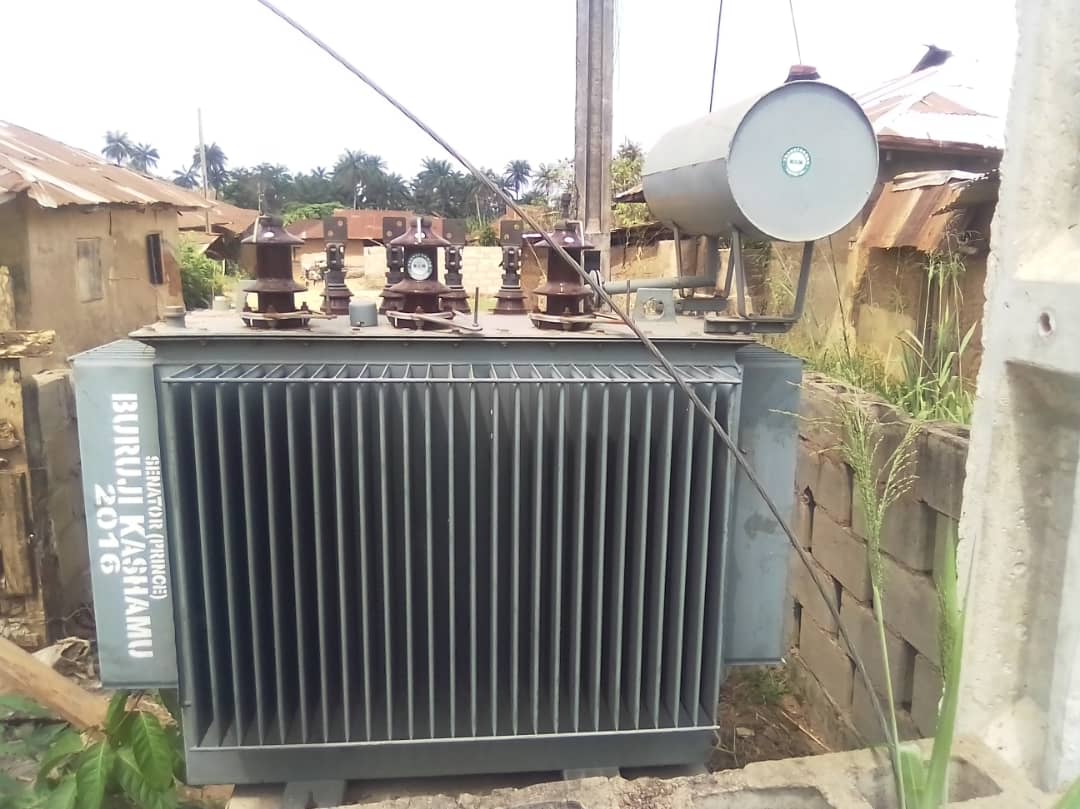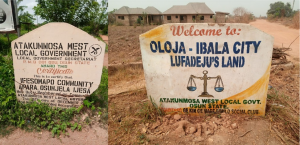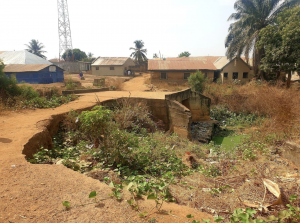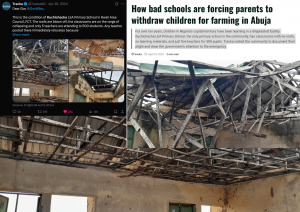
If you have read any piece about Orile-Oko, it will likely be about its affiliation with Ishara-Remo, an ancient town in the present-day Remo North and the 6th largest town in Ogun State, right after Ago Iwoye. Now, Ishara-Remo is quite popular, but Orile-Oko? not so much – at least not to the non-residents of Ishara community, its environs and some parts of Ogun State. This would make sense, seeing that Orile-Oko, even though consists of 40 villages, is still a rural settlement in Ishara with a population of about 15,000 people who are mostly into crop and livestock farming, as it is with several other rural settlements in Nigeria.
The first time Tracka went on a visit, it was hard to miss the energy and excitement exuded by the residents as they went about their daily activities. The brightness on their faces was utterly evident, we could almost touch it.
Something else makes Orile-Oko distinct; its vibrant youths, constituting at least one-third of its total population and an interesting blend of artisans, students and farmers.
In the words of a Statesman in Orile-Oko, the residents consider themselves blessed with numerous resources.
“We don’t need much, at least for now. All we want from the government is the provision of basic necessities, infrastructure and amenities that characterize a comfortable and productive environment” He explained in his dialect.
Lack of constant electricity supply; a long-standing distress
You might have stumbled on a few articles, documenting the lamentations of its residents in the past about the lack of some basic amenities. If you dig a little further, you might even read about a few outbursts on the current state of electricity supply to their communities. Something they describe as a long-standing tug of war, until Tracka came into the picture, two years ago.
Not that there wasn’t an existing provision for power supply in Orile-Oko, but the existing arrangement could only cater for a few communities, while others were left to either accept the situation or make provisions for their own electricity if it was really important.
Living in perpetual darkness was not new in some communities in Orile-Oko. In fact, according to Olanrewaju, one of the natives who spoke to Tracka, children within a certain age-range in those communities do not know what it means to have “light”.
“We are actually very used to this. The few times I have gone on business visits to a few towns in Ogun State, I get sad because I see how considerably constant electricity supply makes their lives easy over there.” Ade lamented, with anger oozing from his expression.
“I don’t live here…” He continued, “..but I have cousins here who are artisans. One is a tailor and the other is a cobbler. It is always discouraging to see how much they struggle with their businesses. All of us cannot live in Lagos, yet the government is not making the lives of those living in this kind of place easier.”
For a community dominated by farmers, you would understand why businesses in Orile-Oko are not operated on a large scale, yet the few small scale businesses are being stifled by unnecessary expenses, mostly on fuel to run their small generators, for those who could afford it.
Oluwaseyi, another young vibrant student who owned a barbing salon had trouble kicking off his small business – because he only had enough to rent a small shop, purchase electric clippers, and a few equipment needed for the early stages of his business. There wasn’t enough capital to buy a generator. For him, that was a major problem, as constant electricity supply is very integral to his barbing business.
“I have not been able to start my business. Though there is a current provision for electricity supply, it is not usually constant and the voltage is always low; so it is of no use.” He further explained.
Tracka’s Advocacy; when it all started
If you speak with a few more settlers who have been affected in different ways, you would definitely hear stories that are more unfortunate and discouraging. This gives more context to the reaction of Elders and residents alike, the first time they were told that Orile-Oko had been represented in the 2018 Budget. Once they realised that the provision was for the supply and installation of a 500KVA transformer, they were all agog with excitement.
However, though funds for the supply and installation of the Transformer as a federal constituency project had been earmarked, the road to its implementation was not that smooth, as Tracka would later discover.
Tracka’s first active engagement with the villagers was immediately after these funds were earmarked. The town-hall meeting was with the Isan Community, one of the reputable communities that constitute the Orile-Oko town, represented by Chief Olakunle Olawale, the coordinating chief of Orile-Oko alongside the youth leaders and other reputable people in the community. There was no doubt about Tracka’s commitment to ensuring the project was duly implemented. However, Tracka was not going to do it alone; the villagers needed to do their part and get ready for the whole nine-yard.
Tracka’s first letter was to Hon. Adesegun Adekoya and the Late Senator Buruji Kashamu, the two elected officials who nominated the project. That same month, another official letter was sent to the Secretary to the Government of the Federation, the executing ministry for the project in question. The demands in the two letters sent were simple; provide the project status, implementation plans, and duration.
Dashed hopes, rejuvenated efforts
Few weeks after the letters were sent, work started in earnest at the project site, and everyone had the reason to hold on to the hope in sight. However, this hope was cut short when Osiyemi Joshua, Tracka’s Project Tracking Officer (PTO) received an unexpected call from Chief Olakunle, that the execution had been stalled, the project site was without activity and the pedestal on which the transformer would be mounted was the only visible work they could see.
The community’s next step was commendable. According to one of the Statesmen, it was difficult for them not to take any action. So, taking a cue from the last town-hall meeting they held with Tracka’s PTO, alongside the series of advocacy engagements initiated by Tracka as regards the completion of this project, they petitioned the two elected representatives for stalling implementation plans, hitherto.
Tracka took it further by engaging the contractor on the implementation status. Unfortunately, this was a dead end. Consequently, Tracka took another bold step by reporting the situation to the Independent Corrupt Practices Commission (ICPC).
“Getting the government to act was really challenging. We didn’t start seeing real actions until Tracka involved the ICPC” Said Chief Ajagundugbe, Baale Ajana.
First, ICPC visited the constituency office to verify the credibility of Tracka’s story. It was quite disheartening to see the transformer openly displayed on the premises, upon their arrival. This infuriated the residents and Tracka. Afterward, the ICPC made a promise to Tracka and assured the residents, that all would be put in place to ensure the delivery and installation of the 500KVA transformer.
The eventual breakthrough
On November 16, 2020, Tracka’s PTO received a happy call from Chief Oladiran Fatai, Baale of Isan community. The transformer had been delivered to the project site, and the excitement on the other end of the line was palpable and unmistaken. More houses in Orile-Oko would have access to electricity supply, after several years of managing an existing, albeit overloaded transformer, and that was quite satisfying.
While speaking on the eventual installation of the 500kva transformer, Adewole Adejola, Tracka’s Community Consultant, gushed about the project implementation, after which he reiterated that the hardest part was over.
Tracka’s next efforts would be to ensure the transformer is connected to the national grid as soon as possible.
Story by Iyanu Fatoba, BudgIT’s Communications Associate




